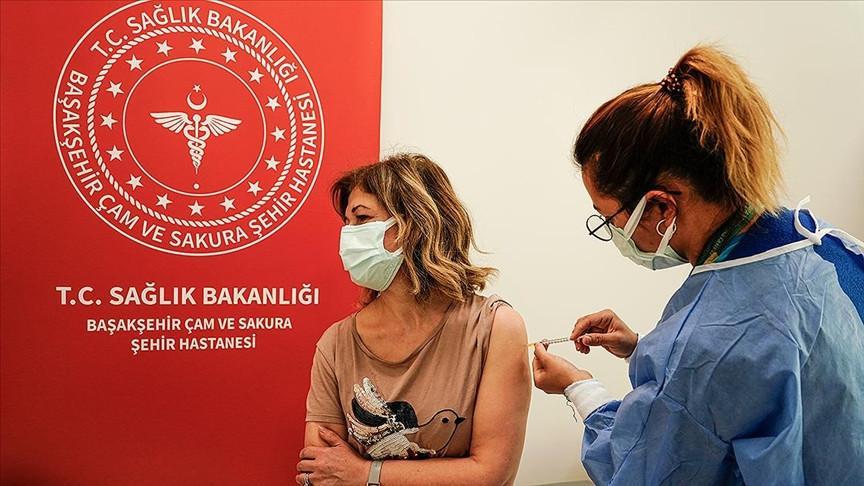
Hesitancy against the COVID-19 vaccine is currently running high in Turkey and creating serious risks at a time when the virus cases continue to hover at record levels in the country, experts have warned.
Some 25 percent of the people who are entitled to receive COVID-19 jabs are avoiding the inoculation and most of those are women, according to experts.
Turkey rolled out its vaccination program on Jan. 14. To date, it has administered nearly 18.9 million doses of the vaccine, with over 11 million people having received the first dose of the jab. Over 7.6 million people have received both doses.
The country started the inoculations with the jab the Chinese pharmaceutical company Sinovac produced, but recently it also began administering the Pfizer/BioNTech vaccine.
People need to arrange an appointment online or through hotlines to get a shot. Once the appointment is missed, people have to wait maybe for months.
“We have limited amount of Pfizer/BioNTech vaccines and they are being wasted because people are skipping their jab appointments,” said Professor Tufan Tükek, the dean of Istanbul Medical School.
Those particular vaccines are stored in special freezers, and a person did not show up for the shot, it cannot be put back to freezer to administer to another individual, he noted. “It directly goes to the bin.”
Tükek stressed that there are a group of people in the public who are not supporting vaccination and that those people need to be convinced.
“The main reason behind avoiding the vaccine is fear. Because of false formation circulating around, people believe the jab has side effects while another reason is the anti-vaccination sentiments,” said experts.
This 25 percent rate is quite high, efforts are needed to tell people why the vaccination is important, they added. Experts also noted that people are showing complacent behavior after receiving the shot but stressed that the immunity starts to kick in 40 days after the second dose.
Turkey needs to administer at least 5 million doses of the vaccine each week and the vaccination rate should be more than 75 percent to achieve herd immunity, said Professor Mehmet Ceyhan from Hacettepe University in Ankara, stressing the vaccine hesitancy must be overcome to meet targets set for the summer.
Summer targets
With the measures to be implemented during the Islamic holy month of Ramadan and probably for another month, the government aims to bring the number of daily coronavirus cases down before the tourist season starts, officials said.
The daily infections have been hovering at around and above 50,000 since April 6, a level not seen before in the country since the start of the outbreak.
The government hopes that if the cases decline to 10,000 at most then Turkey may avoid being added to the “red list” of nations such as the U.K., Germany and Russia, from where Turkey normally attracts large numbers of tourists.
Officials noted that even if those countries do not directly ban travels to Turkey, a requirement of going under a 14-day quarantine upon arrival from risky countries will discourage potential travelers.
Thus, Turkey wants to reduce the daily infections down to 10,000 at most during the summer months to ensure that it is safe to travel and vacation in.
Measures to be implemented during Ramandan are expected to be announced after the cabinet meeting on April 13.